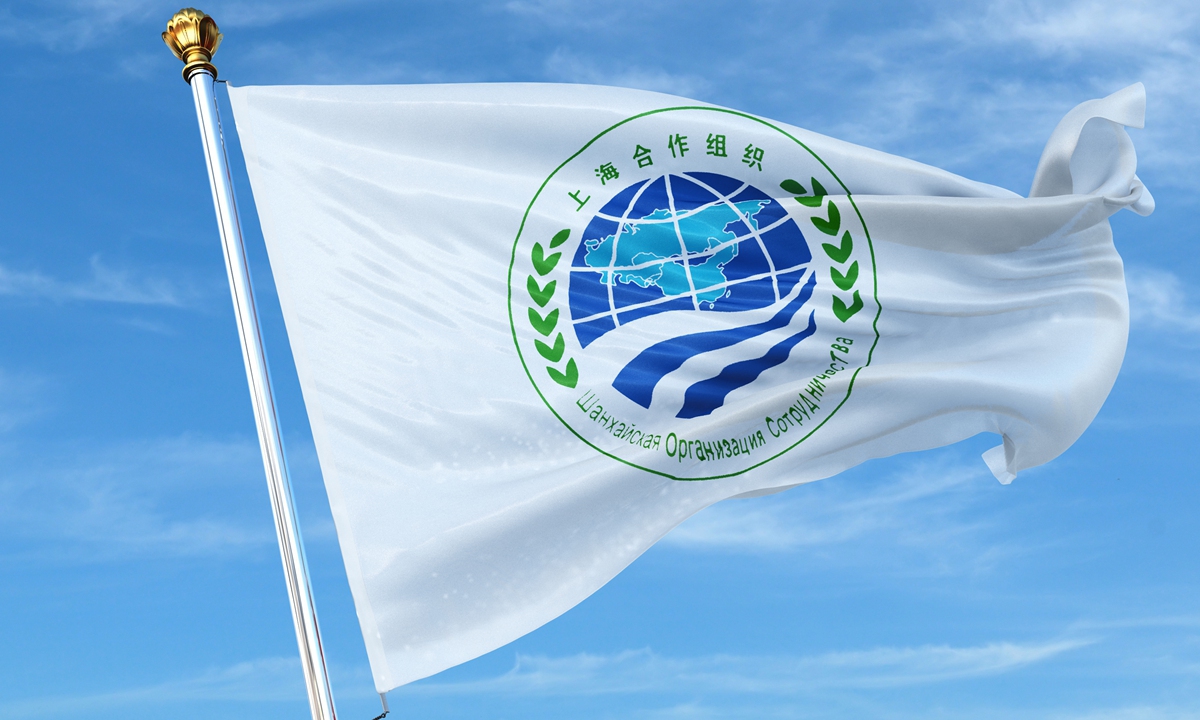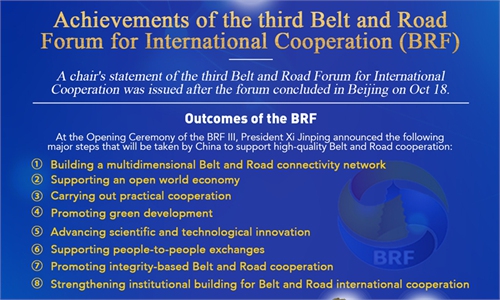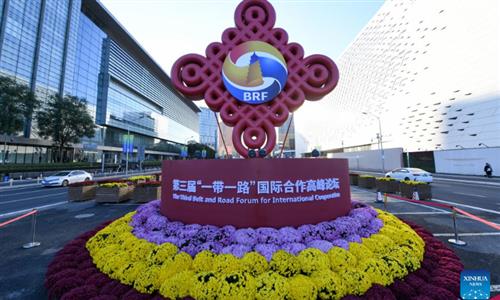China, Central Asia gear up for in-depth upgraded cooperation riding on BRI boons: expert

Shanghai Cooperation Organisation Photo: VCG
China and the five Central Asian countries are expected to yield more upgraded economic cooperation projects marked by green, digital economy in the next ten years, experts said, following the tangible results that have delivered from opportunities released by the just-concluded third Belt and Road Forum for International Cooperation (BRF), which marked the 10th anniversary of the Belt and Road Initiative (BRI) and ushered in what Chinese President Xi Jinping called another "golden decade" of BRI cooperation.
The comment came after official announcement by the Foreign Ministry on Friday that Chinese Premier Li Qiang will attend the 22nd Meeting of the Council of Heads of Government of the Shanghai Cooperation Organization (SCO) Member States in Bishkek, Kyrgyzstan and pay an official visit to the Kyrgyz Republic from October 24 to 27, at the invitation of Prime Minister Akylbek Japarov of the Kyrgyz Republic.
Li together with other participating leaders will follow through on the consensus reached at the SCO summit in July, have in-depth exchange of views on the SCO Development Strategy and formulate concrete measures on cooperation in such areas as security, economy and trade, connectivity and people-to-people exchanges, said Mao Ning, a spokesperson for the Foreign Ministry.
It is Li's first visit to Kyrgyzstan since taking office earlier this year, and also the second visit to the country by a Chinese premier in seven years.
During his visit to Kyrgyzstan, Li will meet with Kyrgyz leaders and exchange views with them on implementing the consensus reached by the top leaders of the two countries which elevated their bilateral ties to a new level of the comprehensive strategic partnership in a new era in May.
China is ready to work with Kyrgyzstan to build a China-Kyrgyzstan community with a shared future of good neighborliness and shared prosperity, carry out cooperation in all dimensions, and contribute to the development and vitalization of both countries, Chinese President Xi Jinping said in May when meeting Kyrgyz President Sadyr Japarov in Xi'an, Northwest China's Shaanxi Province.
Li's visit "will be of great significance to promoting the development of China-Kyrgyz relations, deepening practical cooperation and building closer ties between the two peoples," Mao said.
The four-day trip came at a moment when regional countries expect the SCO to make greater contributions to safeguarding their security and development interests amid an increasingly complex international landscape.
Zhou Rong, a senior research fellow at the Chongyang Institute for Financial Studies at Renmin University of China, told the Global Times on Saturday that Li's visit could well reflect the vital importance that China attached to its friendly neighbour.
"It is believed that Li will well implement the consensus previously reached and offer China's efforts conducive to maintain the region's stability, security and prosperity," Zhou said.
The economic cooperation between China and the five Central Asian countries have been on a rapid upgrading track over recent years, shifting from traditional areas such as infrastructure, transport and energy toward green and digital economy and other newly-emerging industries.
China and the five Central Asian countries launched an action plan for green technology development on Wednesday to promote cooperation on green technology in ecology, agriculture and biodiversity, in a bid to address the region's massive challenges such as climate change, ecological degradation and environmental crises. It was kicked off during a high-level forum on green development held simultaneously with the third BRF in Beijing.
"A continuously upgrading cooperation model is being forged riding on the boons of BRI, and more small yet beautiful projects are expected to land in Central Asia in the next decade under the initiative," Zhou added.
Traditional trade is also burgeoning between China and Central Asia. Last year, China's imports of agricultural, energy and mineral products from the five Central Asian countries jumped over 50 percent from a year earlier, while exports of mechanical and electronic products to them increased by 42 percent.
Global Times


